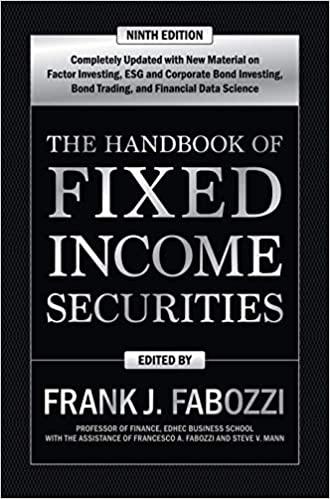Question 1 (9 marks): Today is 13 December 2018. A fund manager sells a one-year put option written on the ASX200 Price index. The current
Question 1 (9 marks): Today is 13 December 2018. A fund manager sells a one-year put option written on the ASX200 Price index. The current value of the ASX200 is 5661.61. Assume the risk-free interest rate is 6% p.a., the dividend yield of the ASX200 is 2% p.a., and the volatility of the index is 15% p.a. The strike price for the put option is 5800. a) The manager would like to hedge and rebalance his portfolio on daily basis by taking positions on the underlying asset and/or one-year call options written on the same underlying with the strike price being 5700. Based on the historical prices of the ASX200 Price index from 13 December 2018 to 31 December 2018, calculate the next 10 days daily profits of his portfolio by considering the following hedging strategy: i) Delta-hedging only; ii) Delta- and gamma-hedging. You need to explain carefully how the profits are calculated by specifying any positions in the underlying asset and/or options. [5 marks] b) Compare and evaluate the hedging strategies in part a. Which strategy would you suggest the manager to choose, and why? What are the potential practical issues related to the strategy that you suggested? [4 marks] Question 2 (5 marks): a) Make one graph including the following four lines: i) The 30-day rolling standard deviation of the ASX200 daily continuously compounded return; ii) The daily volatility estimate of the ASX200 daily continuously compounded return using the EWMA model with lamda being 0.8; iii) The daily volatility estimate of the ASX200 daily continuously compounded return using the EWMA model with lamda being 0.94; iv) The Australian VIX. Your graph should cover the period from 2 January 2018 to 31 December 2018. Include a proper legend, chart title, and axis titles in your graph. [3 marks] b) Compare and comment on your plots for a.ii) and a.iii). [1 mark] c) Provide an interpretation of what the VIX number means. Be as specific as possible. [1 mark] Question 3 (6 marks): You manage a well-diversified portfolio that mirrors the ASX200 Price Index and is currently worth $100 million. You would like to carry out a stress testing for your portfolio by estimating how a companys portfolio would have performed under some of the most extreme market moves. You would like to focus your stress testing on the period from 1 July 2007 to 30 June 2009. a) Find the 99.5% non-parametric daily stressed value-at-risk (VaR) and the 99.5% nonparametric daily stressed expected shortfall (ES) of continuously compounded daily returns on the ASX200 Price Index. The non-parametric VaR/ES is also called the cut-off or percentile method of finding the VaR/ES. [3 mark] b) What are the advantages and disadvantages of using stressed VaR in determining capital reserve. [3 marks]
Step by Step Solution
There are 3 Steps involved in it
Step: 1

See step-by-step solutions with expert insights and AI powered tools for academic success
Step: 2

Step: 3

Ace Your Homework with AI
Get the answers you need in no time with our AI-driven, step-by-step assistance
Get Started


